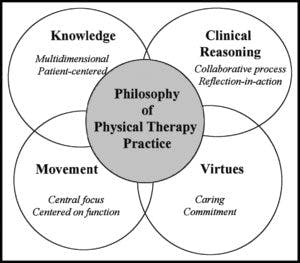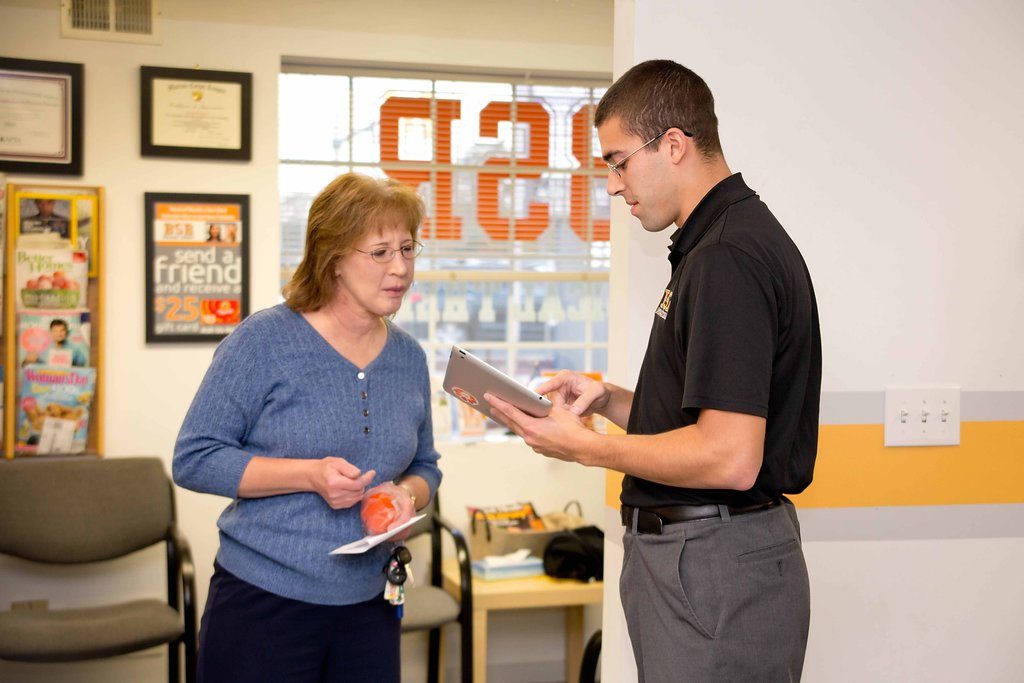Previously, I discussed the attributes of expert physical therapists. Experts share an inner drive for continual learning and improvement of their craft. Experts collaborate with patients to solve problems and possess a belief that patients are responsible for their own health. Several other related themes include spending more time with their patients, placing a greater emphasis on educating their patients, being more responsive to their patients needs, and possessing more extensive knowledge than novices1, 2.
A study by Resnik and Jensen3 further explored the characteristics of expert and novice physical therapists based on the outcomes of their patients seeking care for low back pain. From the results of this study, experts were distinguished from novices by a patient-centered approach which resulted in superior results/outcomes for their patients. Within this approach patients are viewed as active participants in therapy (not passive recipients). The primary goal of therapy is the empowerment of the patient. Empowerment is achieved through collaboration between the therapist and patient, ongoing patient education, and the establishment of a positive therapeutic relationship or alliance. The patient-centered approach results from the interplay of the expert’s clinical reasoning, knowledge base, clinical practice style, and values & virtues.

Expert Clinical Reasoning
Successful outcomes from physical therapy can be fostered through the empowerment of patients and interactions which promote self-efficacy. Patients benefit when given a sense of control over their problem. This sense of control and empowerment can be accomplished through education, avoiding passive treatments (ultrasound, hot packs, etc), minimizing unnecessary visits, and assisting patients with developing self-management strategies. Experts collaborate to solve problems and resemble more of a coach, teacher, or guide than they do a “healer”.
Knowledge Base of Expert Physical Therapists
Years of experience do not distinguish experts from the average. Experts obtain knowledge through clinical experiences, specialty education, their colleagues, and continual self reflection. Experts seek out knowledge and consult with their peers about challenging patient cases. They typically practice in supportive environments where professionals learn from each other. Experts emphasize the observation of functional movement constantly evaluating their patient’s movement patterns.
Values & Virtues of Expert Physical Therapists
It is obvious to others that expert physical therapists enjoy their work and have a passion for helping others. Many view the practice of physical therapy as “a calling”. As mentioned, experts possess a drive to continually learn and improve their skills. Experts are humble and inquisitive; both characteristics of lifelong learners.
Clinical Practice Style of Expert Physical Therapists
Experts adapt and individualize their interactions, examination, and treatments to meet patient needs and foster empowerment. Patient education is central to the expert clinical practice. Expert’s value the continuity of care with their patients and are very stringent with delegating tasks to aides or assistants. Most practice without support personnel.
In Closing
Patients receiving the services of physical therapists should seek out experts who possess the attributes and characteristics discussed here. It is appropriate and recommended to visit multiple physical therapist clinics to observe these attributes in action before deciding on a physical therapist to collaborate with. In particular, take note of the style which a physical therapist interacts with their patients. Look for signs of a coach or educator who engages their patients in the decision making process, and ultimately empowers their patients to take ownership of their overall health.
Thank you for reading!
Ernie
References
- Jensen GM, Gwyer J, Shepard KF. Expert practice in physical therapy. Phys Ther. 2000;80(1):28-43-52.
- Jensen GM, Shepard KF, Gwyer J, Hack LM. Attribute dimensions that distinguish master and novice physical therapy clinicians in orthopedic settings. Phys Ther. 1992;72(10):711-722.
- Resnik L, Jensen GM. Using clinical outcomes to explore the theory of expert practice in physical therapy. Phys Ther. 2003;83(12):1090-1106.

